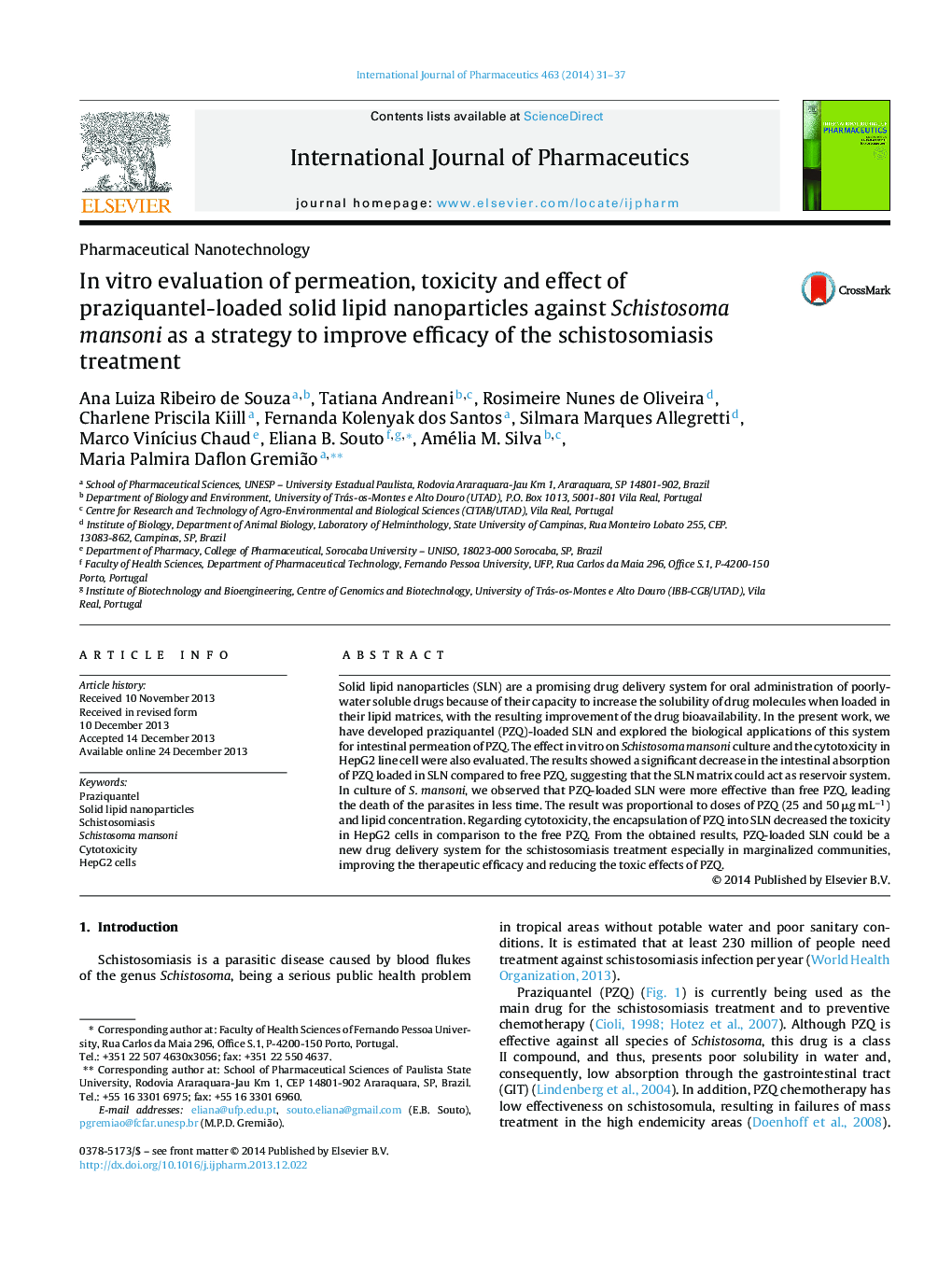| Article ID | Journal | Published Year | Pages | File Type |
|---|---|---|---|---|
| 5819975 | International Journal of Pharmaceutics | 2014 | 7 Pages |
Solid lipid nanoparticles (SLN) are a promising drug delivery system for oral administration of poorly-water soluble drugs because of their capacity to increase the solubility of drug molecules when loaded in their lipid matrices, with the resulting improvement of the drug bioavailability. In the present work, we have developed praziquantel (PZQ)-loaded SLN and explored the biological applications of this system for intestinal permeation of PZQ. The effect in vitro on Schistosoma mansoni culture and the cytotoxicity in HepG2 line cell were also evaluated. The results showed a significant decrease in the intestinal absorption of PZQ loaded in SLN compared to free PZQ, suggesting that the SLN matrix could act as reservoir system. In culture of S. mansoni, we observed that PZQ-loaded SLN were more effective than free PZQ, leading the death of the parasites in less time. The result was proportional to doses of PZQ (25 and 50 μg mLâ1) and lipid concentration. Regarding cytotoxicity, the encapsulation of PZQ into SLN decreased the toxicity in HepG2 cells in comparison to the free PZQ. From the obtained results, PZQ-loaded SLN could be a new drug delivery system for the schistosomiasis treatment especially in marginalized communities, improving the therapeutic efficacy and reducing the toxic effects of PZQ.
Graphical abstractAdult worms of Schistosoma mansoni exposed to praziquantel (PZQ) in: (a) PBS (25 μg mLâ1); (b) PBS (50 μg mLâ1); (c) SLN (Eq. 25 μg mLâ1); (d) SLN (Eq. 50 μg mLâ1); (e) PZQ-SLN (25 μg mLâ1 of PZQ); (f) PZQ-SLN (50 μg mLâ1 of PZQ). Arrows indicate nanoparticles in worm tegument (magnification of 100Ã).Download high-res image (107KB)Download full-size image
